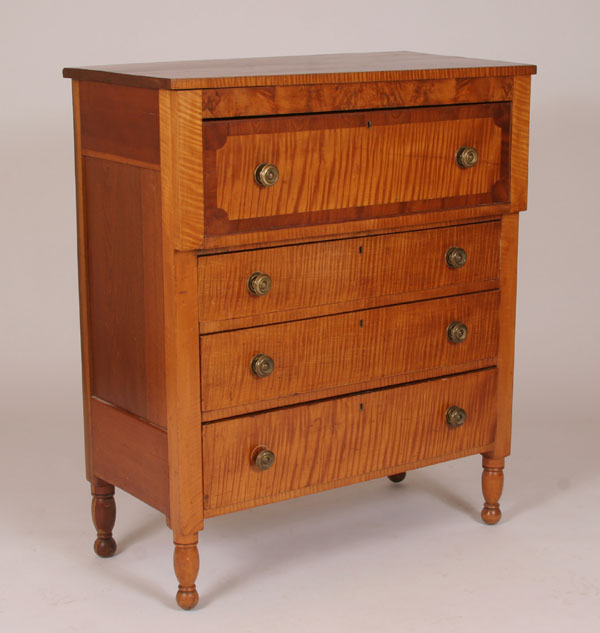His Tobias Mindernickel, a waif-like figure of Dostoyevskyian inspiration, lives in terrible solitude on the top floor of a working-class house, in a wretched room with no adornment except for a chest-of-drawers, 'a solid piece of Empire furniture with metal handles, an object of value and of beauty'. In the room there is also a sofa covered with a green material; Mann does not say whether this is Empire, but since it 'smells of dust' we imagine that it is. While taking note of the German writer's concession that this chest-of-drawers has 'value and beauty,' I deplore the fact that he should have made it the witness of a sordid crime. For Tobias takes refuge from a world that makes fun of him, and from his own terrible solitude, in the company of a gun-dog, which he ill-treats and caresses by turns, until one day he vents upon it his sadistic obsession, like the protagonist of Poe's The Black Cat, and, at a moment when the young dog is more lively than usual, stabs it; and so the dog dies. Tobias weeps, and the Empire chest-of-drawers silently protests.
[Mario Praz, On Neoclassicism]
